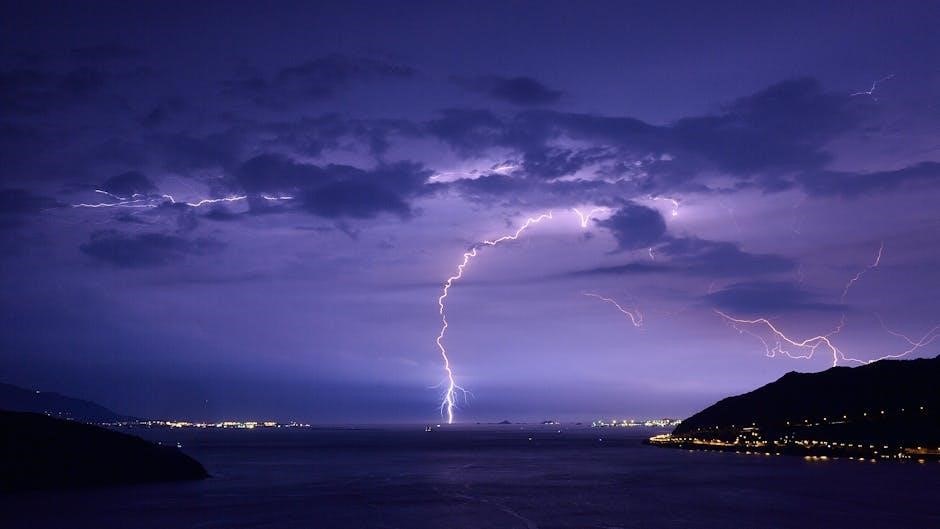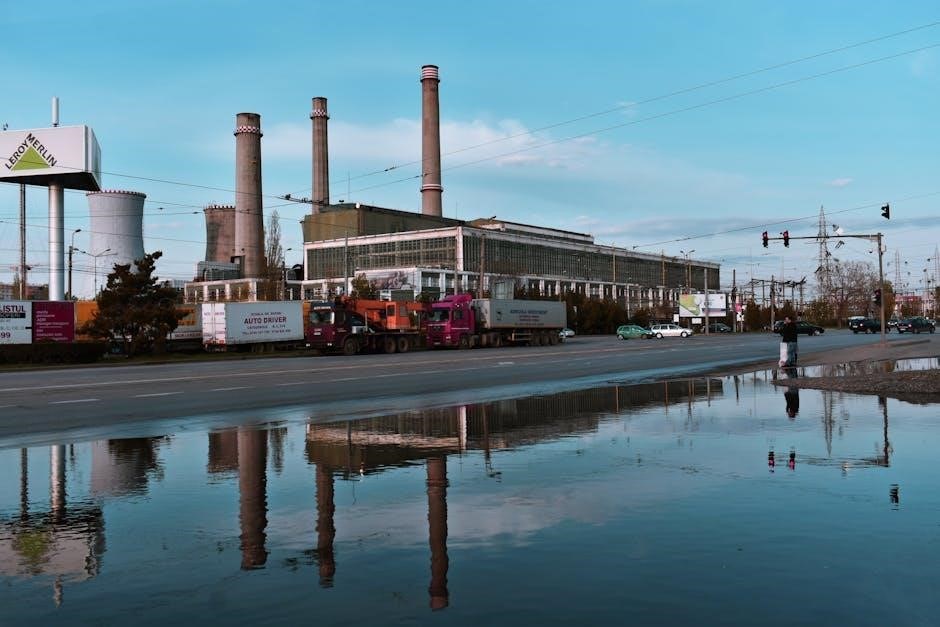Electric water heaters are essential appliances that convert electrical energy into heat to warm water for household use. They offer efficient solutions for modern energy needs.
What is an Electric Water Heater?
An electric water heater is a device that uses electrical energy to heat water for household or commercial use. It works by converting electricity into heat, which is then transferred to water stored in a tank or heated on demand. These units are designed to provide a reliable and consistent supply of warm water, making them a essential appliance in modern homes. Electric water heaters are available in various configurations, including tank-style and tankless models, each offering distinct advantages. They are known for their simplicity, ease of installation, and low maintenance requirements, making them a popular choice for many users. By utilizing electricity as their energy source, these heaters offer a clean and efficient way to meet water heating needs.
Why Energy Efficiency Matters for Water Heaters
Energy efficiency is crucial for water heaters as they account for a significant portion of household energy consumption. With rising energy costs and environmental concerns, optimizing water heater efficiency reduces utility bills and minimizes carbon emissions. Efficient models use less energy to produce the same amount of hot water, lowering operational costs over time. Additionally, energy-efficient water heaters align with global efforts to reduce greenhouse gas emissions and promote sustainable energy use. By choosing an energy-efficient electric water heater, homeowners can contribute to a greener future while saving money. This makes energy efficiency a key consideration for both economic and environmental reasons, especially as electricity increasingly comes from renewable sources.
Types of Electric Water Heaters
Electric water heaters come in two main types: tank-style and tankless. Each offers unique benefits, catering to different household needs and energy preferences, ensuring versatility.
Tank-Style Electric Water Heaters
Tank-style electric water heaters are the most common type, using an insulated storage tank to hold and heat water. They typically range in size from 30 to 80 gallons. These heaters use one or two heating elements (upper and lower) to warm the water. The upper element heats water first, while the lower element maintains temperature. They operate by continuously heating water, even when not in use, which can lead to standby energy losses. Despite this, they are relatively affordable and easy to install. However, they may have higher long-term energy costs and require more space due to the tank. Regular maintenance, such as checking temperature settings and inspecting elements, is essential for optimal performance.
Tankless Electric Water Heaters
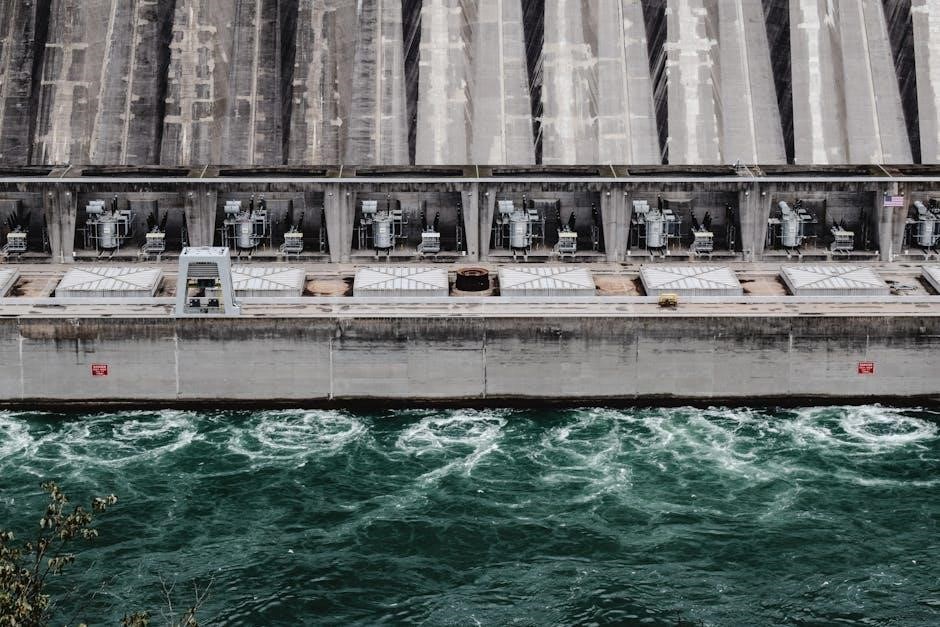
Tankless electric water heaters provide hot water on demand without storing it in a tank. They heat water as it flows through the unit, offering continuous supply. These heaters are compact, space-saving, and energy-efficient, as they only use energy when hot water is needed. They often come with adjustable temperature controls and can be installed at the point of use or centrally. While tankless models typically have higher upfront costs, they may offer long-term energy savings. However, they require sufficient electrical capacity and may need additional plumbing adjustments. Maintenance is generally minimal, but ensuring proper installation and water quality is crucial for longevity. Tankless electric water heaters are a popular choice for those seeking efficiency and convenience.
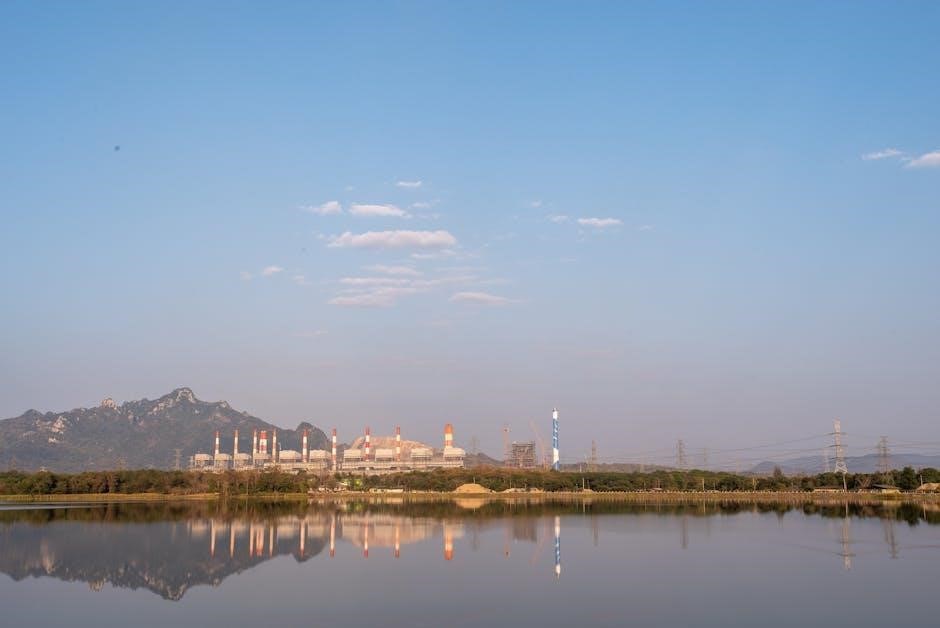
Energy Consumption and Costs
Electric water heaters consume energy based on usage and efficiency. Costs vary by electricity rates and water usage patterns, impacting overall household energy expenses significantly.
How Much Energy Does an Electric Water Heater Use?
An electric water heater typically uses between 1.5 to 5 kilowatts (kW) of power, depending on its size and efficiency. On average, a standard 50-gallon electric water heater consumes around 4,500 kilowatt-hours (kWh) of electricity per year. This energy usage is influenced by factors such as the heater’s power rating, insulation quality, and standby losses. Higher-efficiency models, like those with advanced insulation, tend to use less energy overall. Additionally, usage patterns, such as how much hot water your household consumes daily, play a significant role in determining total energy consumption. Understanding these factors can help you estimate and manage your energy costs more effectively.
Calculating Your Water Heater’s Energy Consumption
To calculate your electric water heater’s energy consumption, start by identifying its power rating in kilowatts (kW). Multiply this rating by the number of hours it operates daily. For instance, a 4.5 kW heater running for 2 hours consumes 9 kWh per day. Over a month, this amounts to 270 kWh. Consider the duty cycle, which is the percentage of time the heater is active while plugged in. If the duty cycle is 50%, adjust the calculation accordingly. Additionally, account for standby losses—energy used when the heater is not actively heating water. Finally, use the Energy Factor (EF) to refine your calculation, ensuring a more accurate estimate of energy consumption and associated costs.
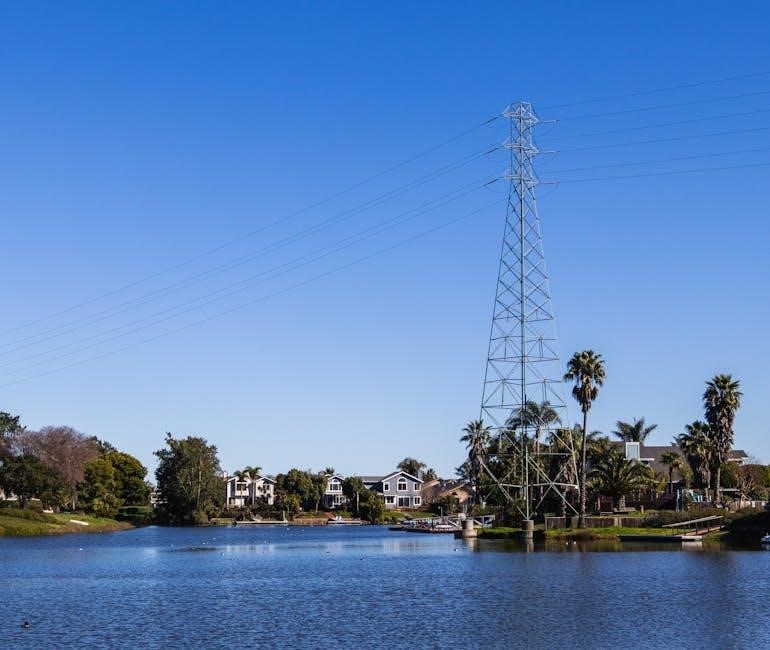
Operating Costs of Electric Water Heaters
Operating costs depend on electricity rates, usage patterns, and heater efficiency. Efficient models reduce energy bills, while higher usage increases costs over time.
Upfront Costs vs. Long-Term Energy Savings
Electric water heaters vary in upfront costs, with tankless models typically being more expensive than tank-style ones. However, energy-efficient options often offset initial investments through long-term savings. High-efficiency models, such as those with advanced insulation or smart technology, may cost more initially but significantly reduce energy consumption over time. Factors like local electricity rates, usage patterns, and the heater’s lifespan also influence overall savings. While traditional models are cheaper upfront, they may lead to higher energy bills in the long run. Balancing these factors is crucial for making a cost-effective decision that aligns with your budget and energy goals.
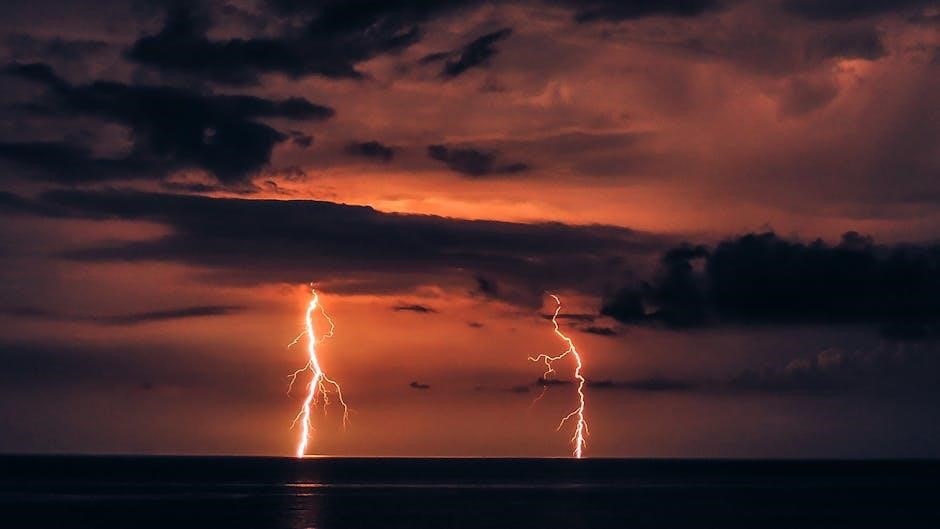
Improving Energy Efficiency
Regular maintenance, smart technology, and high-efficiency models are key strategies for enhancing performance and reducing energy consumption in electric water heaters, promoting sustainable energy use.
Maintenance Tips for Optimal Performance
Regular maintenance ensures your electric water heater operates efficiently. Check the temperature setting and keep it around 120°F to prevent excessive energy use. Inspect heating elements for corrosion or damage and replace them if necessary. Flush the tank annually to remove sediment buildup, which can reduce efficiency. Check the pressure relief valve to ensure it’s functioning properly. Additionally, insulate exposed pipes to minimize heat loss. Consider installing a timer to control heating cycles during off-peak hours. Finally, schedule annual professional inspections to address any underlying issues. These simple steps can significantly reduce energy consumption and extend the lifespan of your water heater.
Smart Technology for Energy Management
Smart technology is revolutionizing how electric water heaters manage energy. Advanced systems allow remote monitoring and control via smartphone apps, enabling users to adjust settings for optimal efficiency. Smart thermostats can learn usage patterns and automatically optimize heating cycles, reducing unnecessary energy consumption. Wi-Fi-enabled water heaters can integrate with home energy management systems, providing real-time energy usage reports. Some models even support voice control through smart assistants like Alexa or Google Home. These technologies not only enhance convenience but also help reduce energy waste, leading to lower utility bills and a smaller environmental footprint. By leveraging smart technology, homeowners can achieve a balance between comfort and energy efficiency.
Environmental Impact
Electric water heaters reduce greenhouse gas emissions compared to traditional gas models, offering a cleaner energy solution. They promote sustainability when powered by renewable energy sources.
Reducing Your Carbon Footprint with Electric Water Heaters
Electric water heaters contribute to a smaller carbon footprint by using electricity, which can be generated from renewable sources like solar or wind. This reduces reliance on fossil fuels.
High-efficiency models and smart technology further optimize energy use, minimizing waste. By choosing energy-efficient electric water heaters, homeowners can significantly lower their environmental impact over time.
Comparing Electric Water Heaters to Other Heating Methods
Electric water heaters are often compared to gas, solar, and heat pump systems. They offer lower upfront costs and higher safety due to no combustion risks. However, gas heaters may be more energy-efficient in areas with low electricity costs. Solar water heaters rely on sunlight, making them eco-friendly but less reliable in cloudy regions. Heat pumps are highly efficient but typically require higher installation costs; Electric water heaters balance affordability, simplicity, and consistent performance, making them a practical choice for many households. Understanding these comparisons helps homeowners select the best option for their energy needs and budget.
